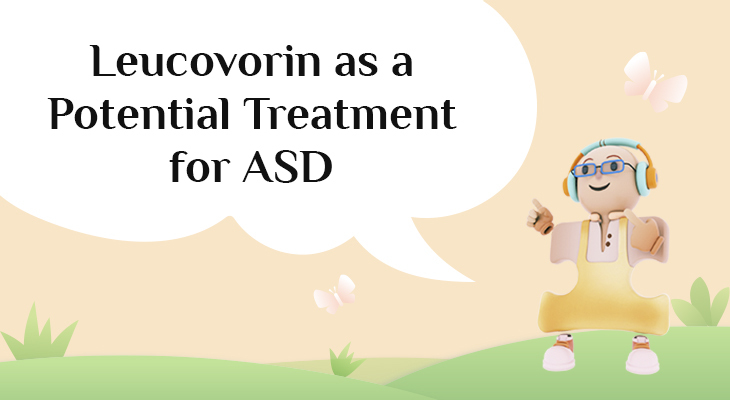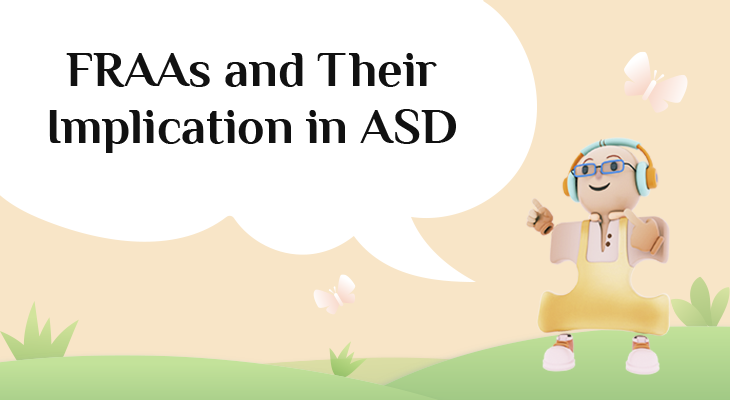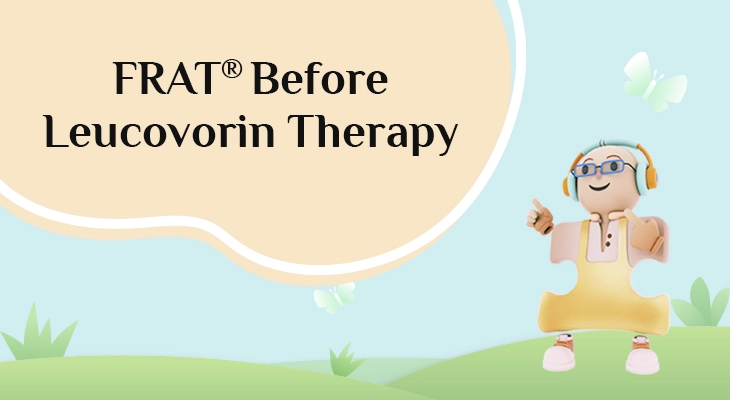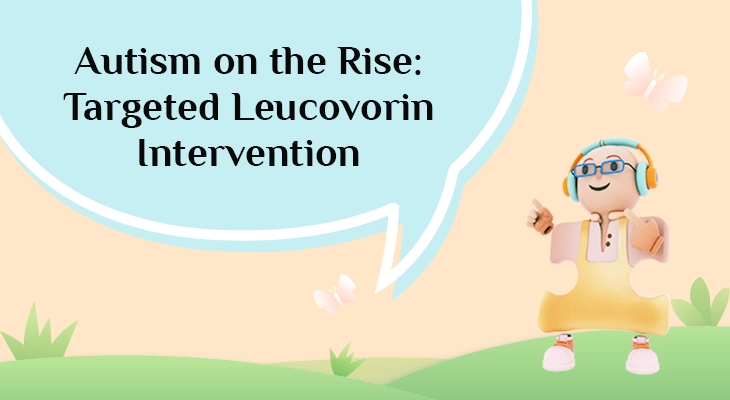
Introduction
For over two decades, researchers have been investigating Leucovorin, a prescription form of folate (vitamin B9), as a novel treatment for Autism Spectrum Disorder (ASD). This research builds on the established use of Leucovorin in oncology to counteract the toxic effects of chemotherapy. The journey, led by clinicians like Dr. Richard Frye and Dr. Dan Rossignol, and researchers such as Dr. Edward Quadros and Dr. Vincent Raemakers, connects a metabolic condition known as Cerebral Folate Deficiency (CFD) to the core symptoms of autism.
The Link Between Folate and the Brain
The scientific foundation was laid in 2005 when a landmark study published by Dr. Quadros and Dr. Raemakers, described children with CFD—low folate levels in the cerebrospinal fluid (CSF)—who saw neurological symptoms improve with Leucovorin treatment. This prompted Dr. Frye to explore its use in ASD, noting that some children with CFD also exhibited autistic features.
A key breakthrough was the discovery of Folate Receptor Autoantibodies (FRAAs). These antibodies, identified by Dr. Edward Quadros, can block folate from entering the brain, leading to CFD. Crucially, FRAAs can be detected with a simple blood test (known as FRAT®), providing a more accessible biomarker than a lumbar puncture. Although a lumbar puncture (a very invasive procedure) is the gold standard in diagnosing CFD, FRAT® has served as a surrogate test to this.
Building the Evidence
In 2010, Drs. Frye and Rossignol launched a study finding that approximately 75% of children with ASD tested positive for FRAAs. When these FRAA-positive children were treated with Leucovorin, about two-thirds showed significant improvements in language, communication, and behavior. These promising results were published in 2013.
To solidify these findings, Dr. Frye conducted the first double-blind, placebo-controlled trial of Leucovorin in children with ASD, published in 2018. The study demonstrated that children on Leucovorin showed significant improvements in verbal communication, the primary outcome, as well as in stereotyped behaviors and social withdrawal. Overall, 65% of children with ASD responded to treatment, a figure that rose to 77% among those who were FRAA-positive. The effect size was large, and the study was rated as one of the most important autism research findings of the year.
This initial evidence has since been replicated and validated by four independent, randomized, controlled trials in different countries, strengthening the case for Leucovorin’s efficacy.
Strength of Research in Context
Critics often point to the small scale of these studies as a limitation. However, it is important to contextualize this research. The only FDA-approved drugs for ASD—the antipsychotics risperidone and aripiprazole—were approved based on short, 8-week trials involving 76 and 204 treated children, respectively. These drugs manage associated irritability and aggression, not core autism symptoms, and carry significant side effects.
In comparison, Leucovorin has now been evaluated in five blinded, controlled trials involving 293 children with ASD, with one trial lasting 24 weeks. It targets core symptoms and has a superior safety profile. Furthermore, the “number needed to treat” (NNT) for Leucovorin in the initial trial was 1.8 for FRAA-positive children, meaning only 1.8 children need to be treated for one to show significant improvement in language. This compares favorably to an NNT of 3 for risperidone.
Clinical Nuances and Practical Challenges
While the research is promising, years of clinical experience have revealed practical challenges that must be addressed for broader use:
- OTC Supplements are Not Substitutes: Over-the-counter folinic acid is not equivalent to prescription Leucovorin. OTC supplements are unregulated, often contain insufficient doses (micrograms vs. prescribed milligrams), and should not be confused with folic acid, which is metabolized differently and is not a treatment for CFD.
- Formulation and Tolerability: Generic Leucovorin tablets contain various inactive ingredients (dyes, binders, milk derivatives) that can be poorly tolerated by children with ASD, leading to side effects or reduced efficacy. Sensory sensitivities and Avoidant/Restrictive Food Intake Disorder (ARFID) can make pill-swallowing difficult.
- Cost and Access: Leucovorin can be prohibitively expensive to some, often costing hundreds to over a thousand dollars per month without insurance coverage (depending on the formulation). Compounded liquid formulations, necessary for many children, are rarely covered by insurance.
- Supply Chain Issues: Generic Leucovorin is prone to shortages, and pharmacists can switch brands without notice. Since brands vary, this can cause sudden regression or behavioral problems. Ultimately, this can be problematic.
Regulatory Developments and The Path Forward
Recent announcements from the FDA have created both opportunity and confusion. The FDA has recognized Leucovorin for the treatment of “genetically confirmed Cerebral Folate Deficiency,” not for ASD directly. This narrow definition requires a lumbar puncture and confirmation of a rare FOLR1 gene mutation, criteria that will exclude the vast majority of children with ASD who could benefit.
The research community appreciates the regulatory attention but advocates for a pathway that reflects the gathering of additional evidence and studies. The science needs to continue.
Future Directions – moving the goal posts.
Some ongoing research initiatives focus on:
- Improved Formulations: Exploring purer, better-tolerated forms like levo-leucovorin.
- Better Biomarkers: Refining the understanding of FRAAs (FRAT®) and other potential biomarkers to identify which children will respond best and to guide dosing.
- Clinician Education: Educating physicians on the biological underpinnings of ASD and how to properly prescribe Leucovorin.
- Prevention: Preliminary research in investigating the role of FRAAs in parents, potentially paving the way for preventative strategies.
Conclusion
Leucovorin represents a paradigm shift, targeting core biological deficits in ASD with the potential for disease-modifying effects. It is not an “autism pill” as often reiterated by Dr. Richard Frye, but a treatment that requires knowledgeable prescribing and a tailored approach for each child. While regulatory recognition is a step forward, ensuring that children have access to safe, effective, and tolerable formulations is the critical next challenge. The evidence, built over 20 years and across multiple controlled trials, offers tangible hope for many families navigating an ASD diagnosis.
Disclaimer: This blog is for informational purposes only, based on current scientific literature available. It is not a substitute for professional medical advice. For all medical advice, please consult a physician.



